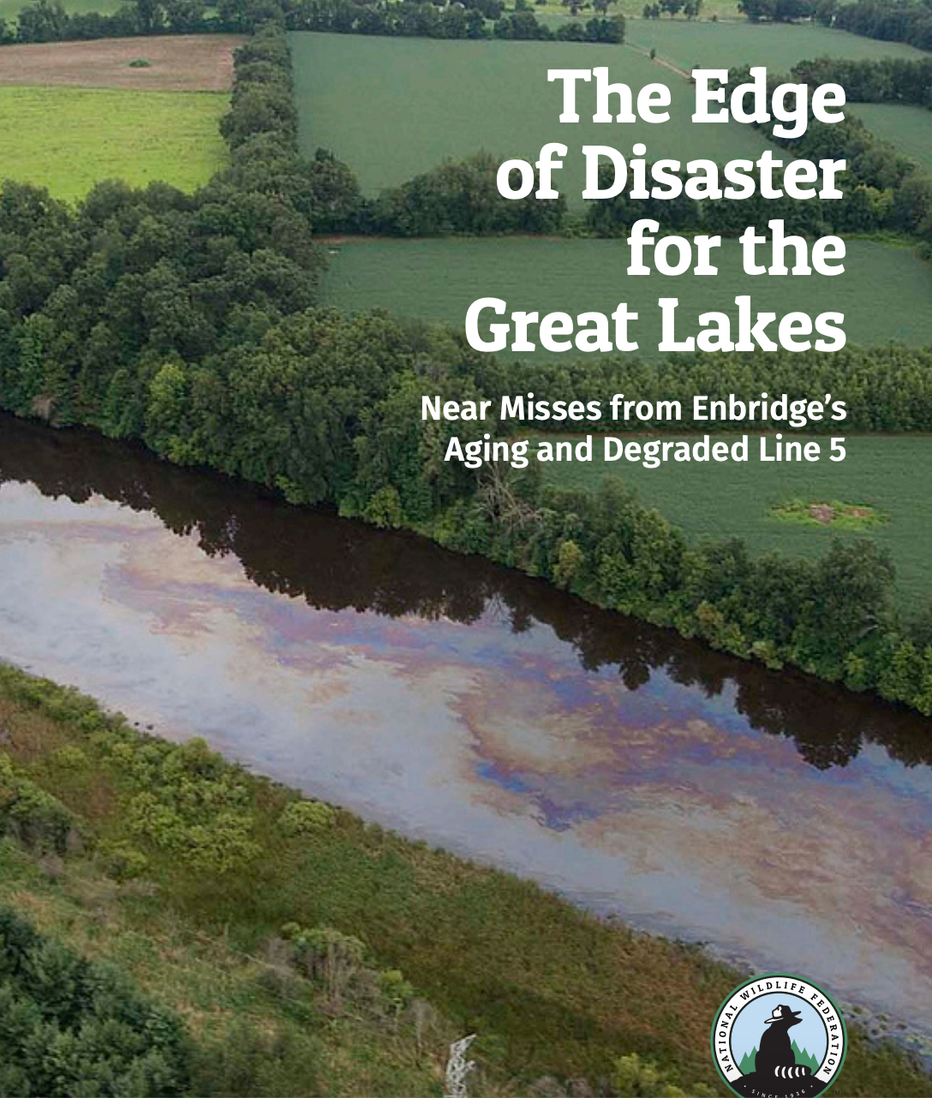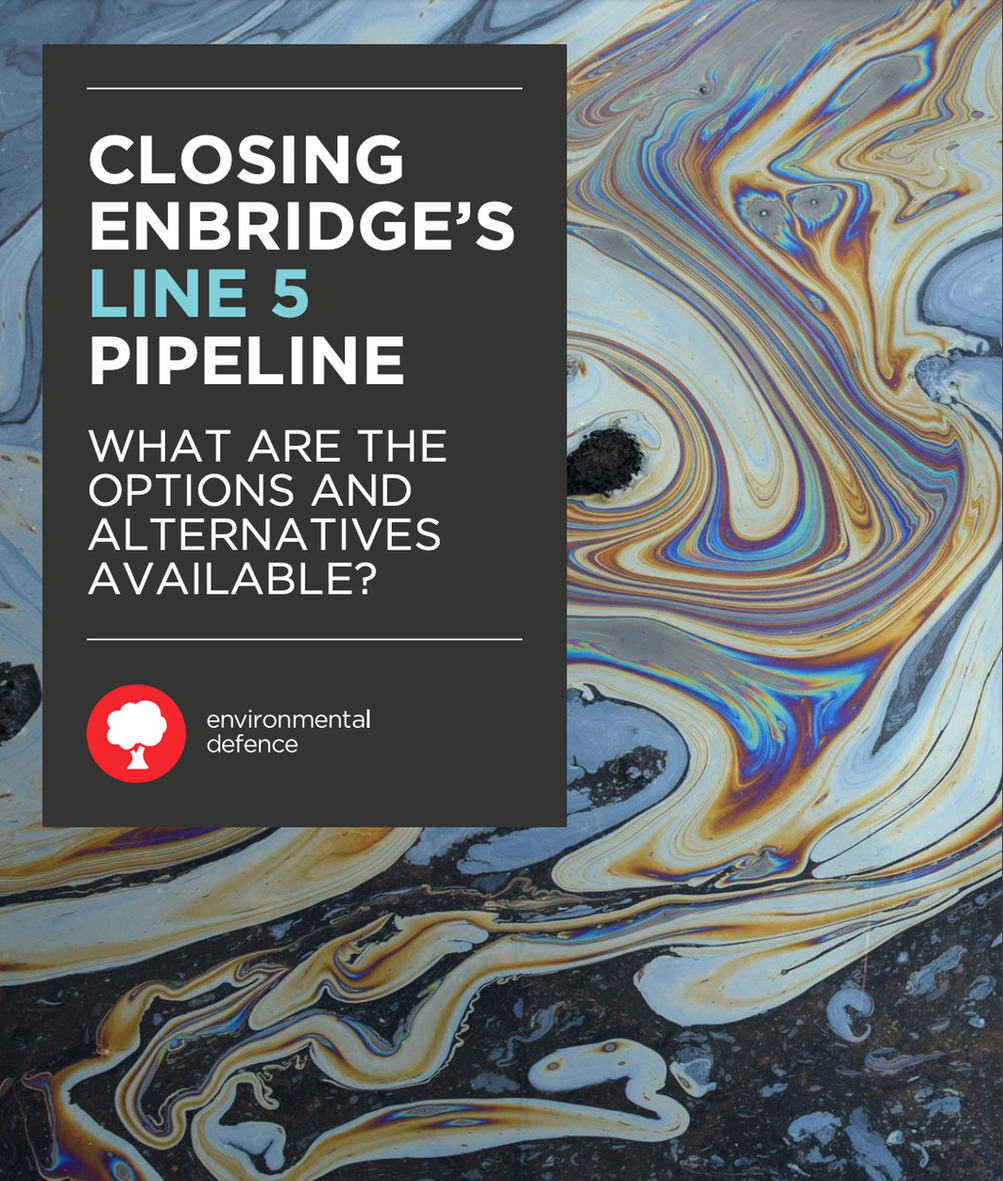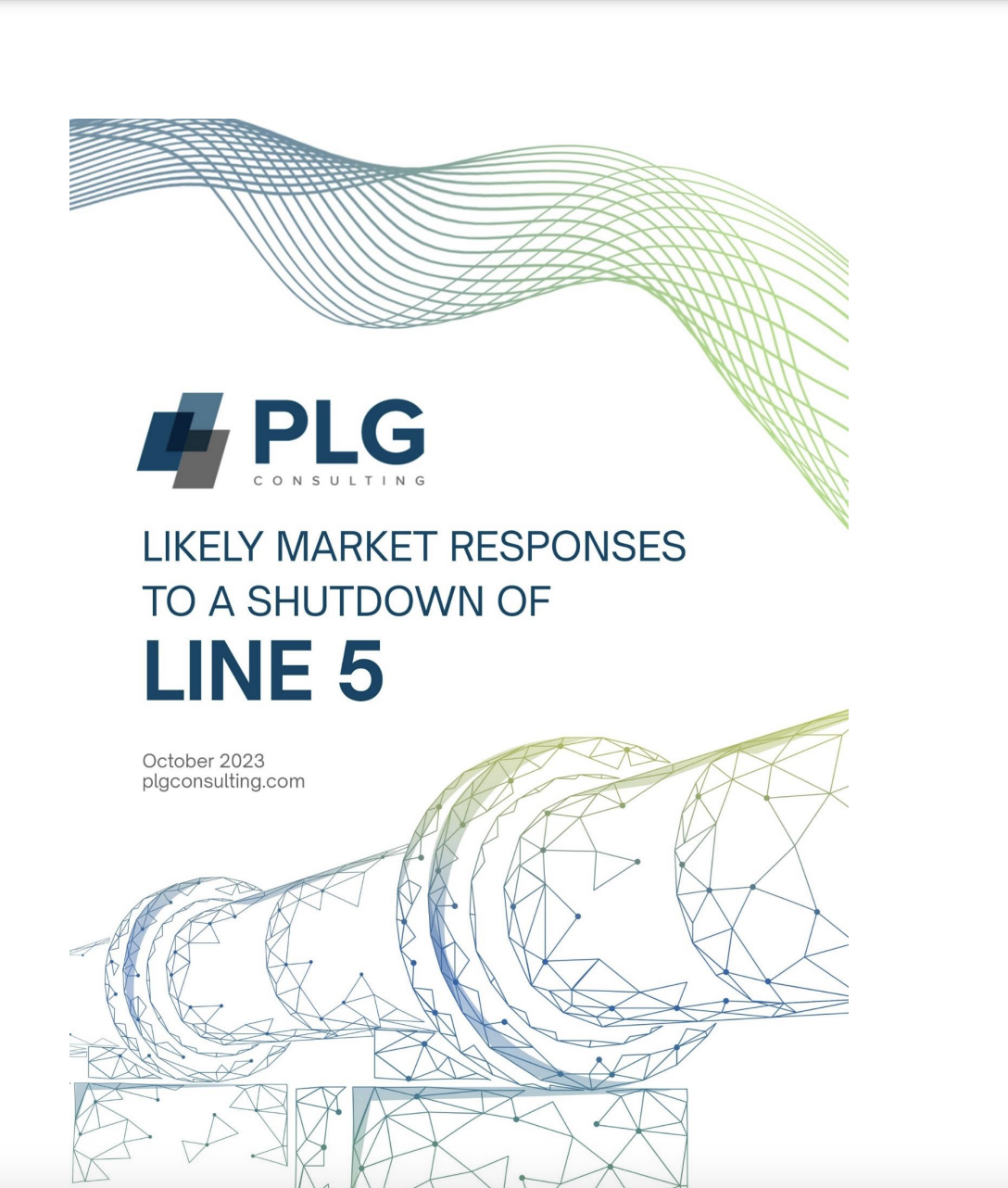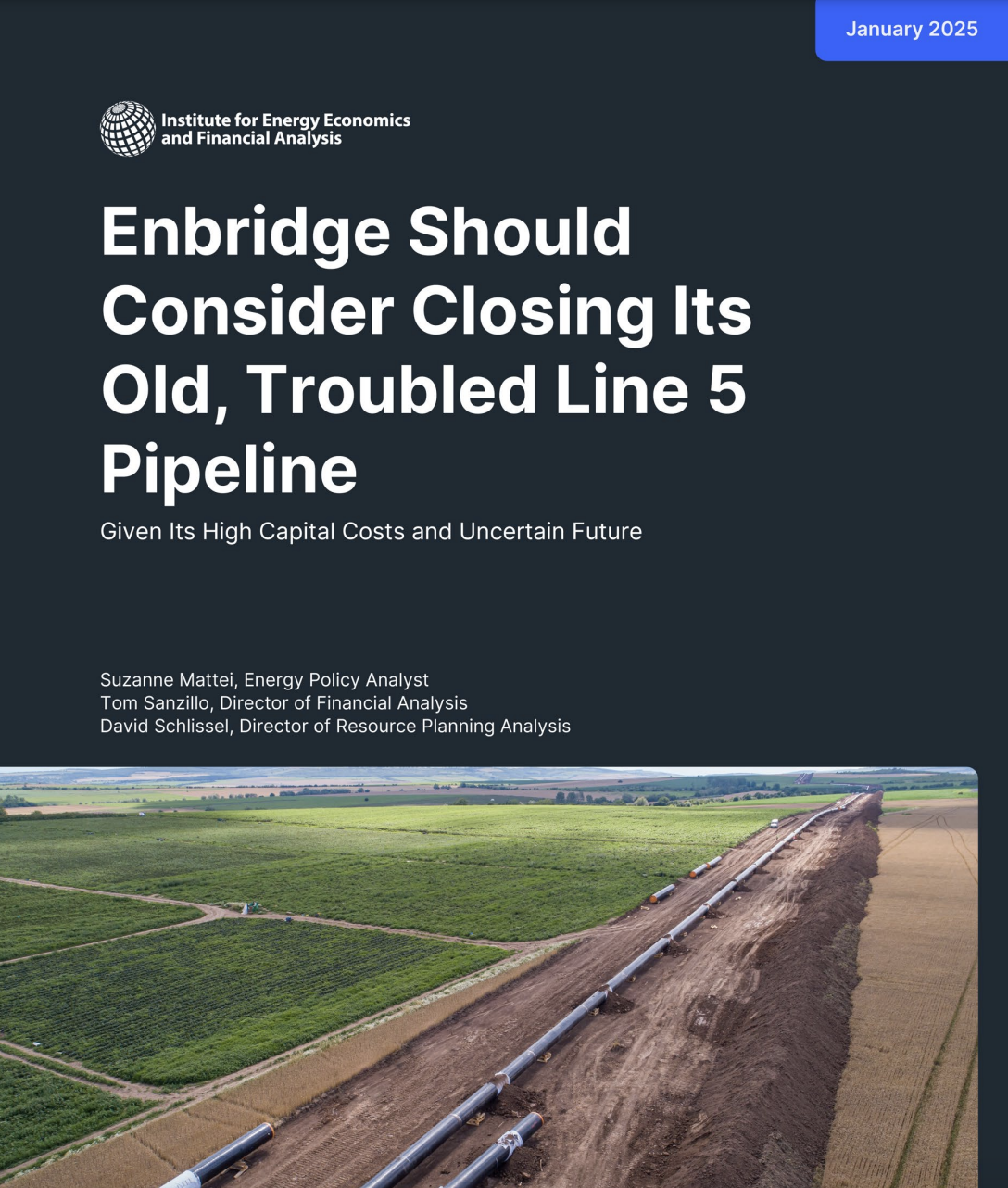Issue Overview
Line 5 is an oil & gas pipeline owned and operated by Enbridge, a Canadian multinational corporation.
This aging pipeline carries crude oil and natural gas liquids (NGLs) from Canada's tar sands through the US. Starting at Superior, Wisconsin, and ending in Sarnia, Ontario, Line 5 cuts through many environmentally sensitive areas such as the Straights of Mackinac and sovereign Indigenous lands.
Line 5 poses significant environmental risks, endangers the security of the Great Lakes, threatens Indigenous sovereignty, and undermines Canada’s commitments to environmental justice and reconciliation.
As of 2020, Enbridge's Line 5 has spilled over 4.5 million litres or 1.1 million gallons of oil into the Great Lakes basin. Today, that number is even higher with new Enbridge oil spills as recent as December 2024.
Line 5 was only meant to last 50 years, but now it's over 70 years old now. It's time to lay this pipeline to rest.
Environmental Threats
The deteriorating pipeline infrastructure poses a significant risk to the Great Lakes, which contain 84% of North America's surface freshwater and provides drinking water to approximately 40 million people. Studies have called the Straits of Mackinac “the worst possible place for an oil spill” due to its powerful currents that could spread oil across hundreds of kilometres of shoreline. Since its construction, Enbridge’s Line 5 has spilled at least 4.5 million litres of oil in 29 incidents.
👉🏽 WATCH: Straits of Mackinac Contaminant Release Scenario (Water Center, University of Michigan, 2014)
Environmental groups and the Bad River Band challenged state permits issued for Enbridge's proposed reroute of Line 5 around the Bad River Reservation, arguing that the project fails to meet environmental laws and poses risks to lands. Additionally, a recent oil spill from Enbridge's Line 6 in Wisconsin has intensified scrutiny of the company's safety record.
In December 2024, nearly 70,000 gallons of oil spilled from an Enbridge pipeline in Jefferson County, Wisconsin, further evidencing the validity of concerns about the company’s ability to operate safely. On January 13th, 2025, Indigenous and non-Indigenous water protectors occupied the headquarters of the Wisconsin Department of Natural Resources for several hours, to protest the department’s decision to issue the Line 5 permits even while covering up the Line 6 rupture.
Great Lakes Security must be of paramount importance in all our decisions. Line 5 has and will continue to be a threat to the Great Lakes as long as it's allowed to stay open.
We need Canadian decision-makers to come out strongly in favour of Great Lakes protection, which means securing against threats like Enbridge's deteriorating and dangerous Line 5 pipeline.
Indigenous Rights
About 185 Indigenous Nations and Tribes live in the Great Lakes basin.
The Anishinabek Nation, representing 39 First Nations in Ontario, is standing in solidarity with its kin in the U.S. and calling for a shutdown of Line 5. All 12 federally recognized Tribes in Michigan have also called for a Line 5 shut down. Bad River Band in Wisconsin is fighting to uphold an eviction order to remove Line 5 and Enbridge from their tribal lands.
Bad River Band experienced the impacts on a Line 5 oil spill first hand when their watershed was impacted by an Enbridge oil spill.
Line 5's threat to Indigenous Peoples around the Great Lakes watershed has also been well documented by research and studies.
Canada has an obligation to uphold Indigenous treaty rights within the Great Lakes basin, including the treaty rights being exercised by Anishinaabeg peoples from across Wisconsin, Michigan, and Ontario to protect their traditional and territorial lands, waters, and ways of life.
It’s clear the ongoing operation of Line 5 is a direct and existential threat to Indigenous Nations of the Great Lakes. These people have been the original stewards of these waters since time immemorial and their way of life and culture is dependent upon their health.
That is why the Line 5 shutdown is critical to the continued well-being and sovereignty of Great Lakes Indigenous Nations.
Economic & Energy Analyses
Experts are unified in their analysis:
- We don't need Line 5 for energy security
- Line 5 is a risky, costly investment
- A Line 5 shut down would have minimal impact on energy prices.
A 2021 Environmental Defence Canada Report...
Enbridge’s Line 5 pipeline carries up to 540,000 barrels worth of oil and natural gas per day from Superior, Wisconsin to Sarnia, Ontario, but we don’t need those fossil fuels to meet our energy demands. PGL Consulting's 2023 white paper concludes, "for both the crude oil and NGLs currently transported by Line 5, there exists a range of replacement options that are both commercially viable and operationally feasible."
In early 2025, the Institute for Energy Economics and Financial Analysis released yet another independent analysis titled, "Enbridge Should Consider Closing Its Old, Troubled Line 5 Pipeline" that highlights the extreme financial risks and alternatives to
Experts across sectors know that Line 5 is not only unnecessary, but also poses significant, tangible risks to people, water, and the economies of the Great Lakes. We can shut down Line 5 with minimal impacts, while protecting our shared heritage.




